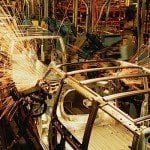The Canadian Cattlemen’s Association intends to seek government approval to begin irradiating beef in Canada. The group applied to Health Canada for permission to begin the use of irradiation in 1998 but was turned down. Irradiation is the process of treating food with dosages of ionizing radiation, which slows or halts spoilage and kills pathogens such as E coli bacteria. The beef-producing industry is seeking permission for approval to irradiate a full range of beef products, but the meat companies would likely focus on ground beef, according to reports.

The beef producers say that irradiation is the one intervention that they are not currently using. With it, there is the possibility of eliminating E coli related illness from beef products, according to the director of the association’s technical services. There have been several outbreaks of beef-originating E coli across Canada over the past few months. The largest recall of beef products in Canadian history occurred last fall when meat from an Alberta processing plant was contaminated with the bacteria and made people sick in several provinces.
The cattlemen say that irradiated beef would be clearly marked as such, and would give consumers the choice to buy it or not, as is now done in the US market. The process can cause the meat to turn a grayish colour, but it is perfectly safe, experts say. Consumers have been found to be uninformed about the process, and tending to be opposed. But when it is explained to them, attitudes change and the response becomes more positive.
It has been compared to the opposition that existed in 1908 when pasteurization was first proposed for milk. That opposition disappeared when the process was shown to be beneficial and harmless.
A Canadian company called Iotron is hoping that its cutting-edge technology will play a role in beef irradiation in Canada. The BC-based company uses technology that was developed by Atomic Energy of Canada in Ottawa, and has just opened a facility in Indiana to serve the agricultural industry there. Meats and produce are approved for irradiation in the US.
Many Canadians are already consuming irradiated foods, even if they don’t know it. There is a perception among the public that it is something to be feared, however.

































